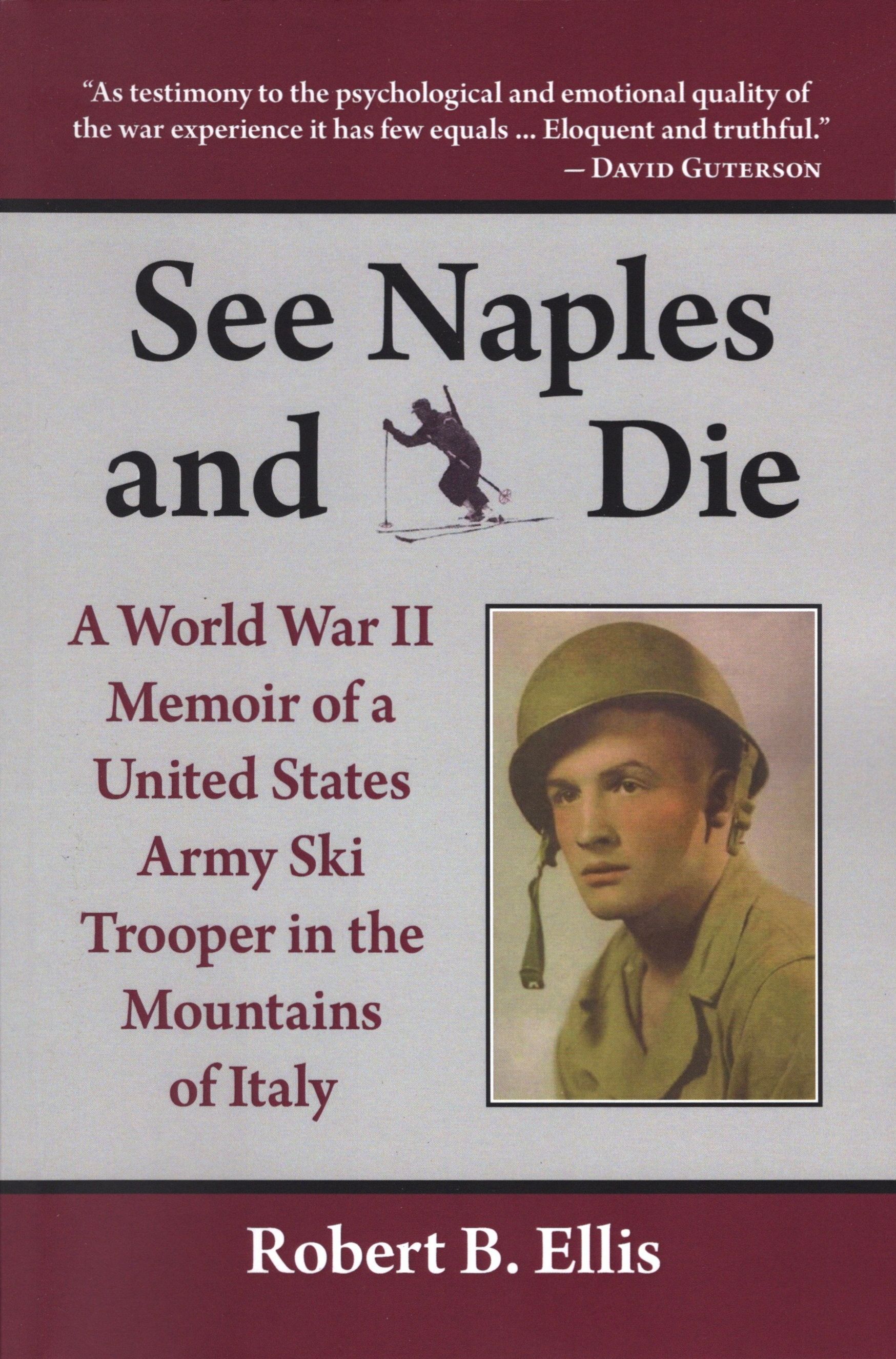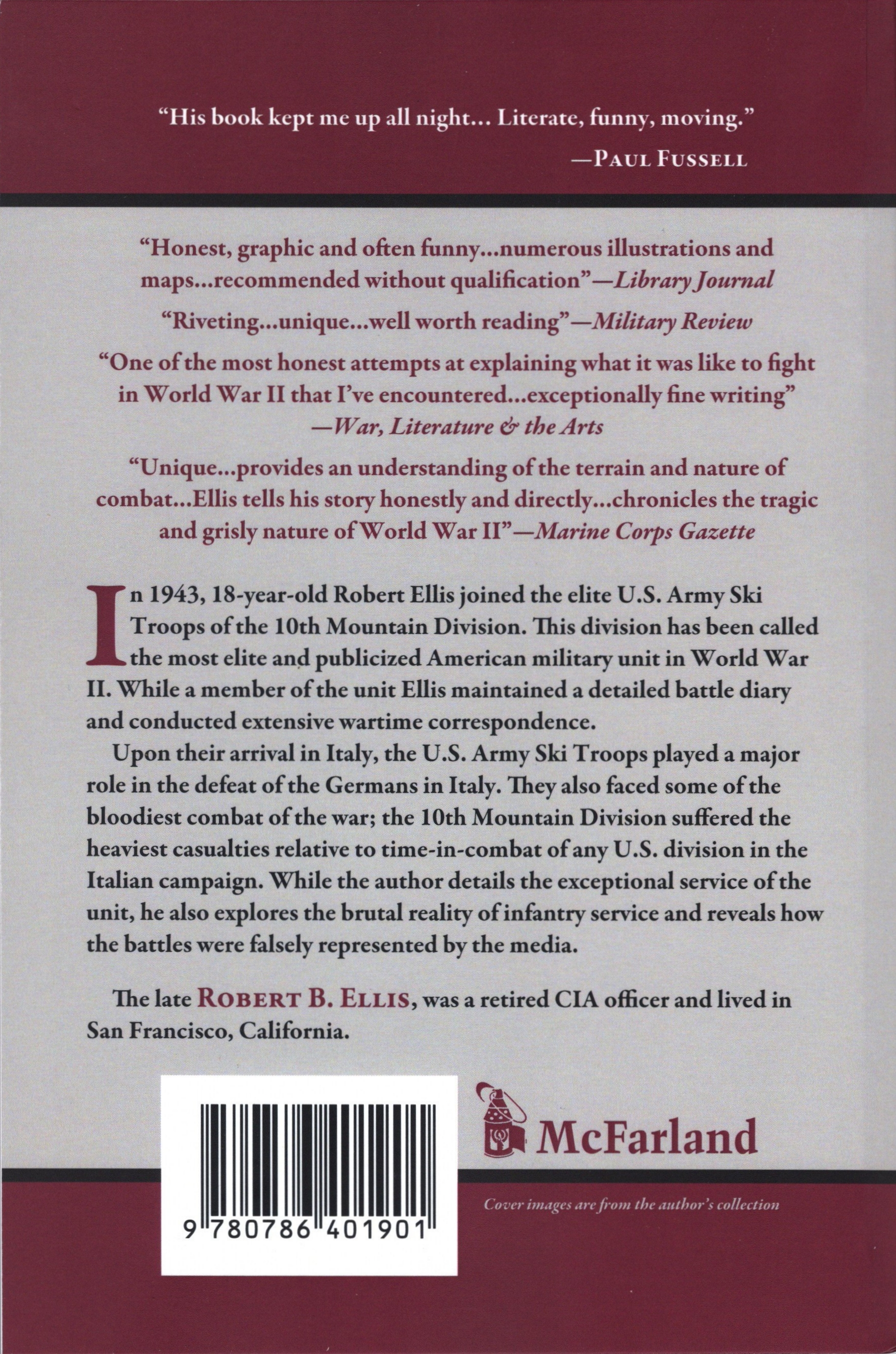

| Home |
See
Naples and Die
|
|||
|
Front Cover
 |
Rear Cover
 |
| |
|
|
My father's book was well received. It's published
by McFarland &
Company, Inc., Publishers, an independent publisher
in North Carolina that also specializes in scholarly and
reference works. They work with libraries,
universities and similar organizations. |
||
|
|
See Naples and Die: A World War II Memoir of a United
States Army Ski Trooper in the Mountains of Italy From The Publisher In the spring of 1943, the 18-year-old son of former medical missionaries to Iran volunteered for service with the Ski Troops of what became the U.S. Army's elite 10th Mountain Division. The 10th, which began its training on Mt. Rainier, attracted some of America's greatest skiers and mountaineers, and has been called the most publicized American army unit of World War II. This book is a harrowing personal account of Robert Ellis' coming of age in this unit which not only suffered five times more casualties in training than any other American division in WW II, but also experienced the heaviest losses relative to time in combat of any U.S. division in the Italian campaign. Through hundreds of emotional and often bitter letters, supplemented by detailed battle diary entries and connecting narrative, Ellis writes with intimacy, candor, and self-deprecating humor about his gradual maturation and accommodation to the many senseless brutalities of military service and the horrors of ground warfare. See Naples and Die is a story about the hopes, cynicism, and disillusionment of a young soldier called to duty in the so-called "good war." It is also a moving tribute to his ski-troop "band of brothers," his family who shared and responded to his letters, and the girl who gave him much needed courage and support during those traumatic years far from home. Unsparing in its honesty about war and human nature, in this narrative not everyone emerges a hero all the time (including the author), and the actions and judgment of commanders are questioned where appropriate, as well as the conduct of some in the lowest ranks. The memoir is often disarmingly funny,
offering relief from the recounting of the grim reality
of training and the combat experience. At the same time,
Ellis makes clear through a myriad of examples how the
institutionalized carnage of infantry battle has been
falsely represented by the media to the public, and
brings home to the reader the awful gap between those
who talk about wars and those who fight them. Ellis tells his story honestly and directly, finding
fault where he saw it-including with himself. He is no fan
of war and the military way of life, neither as a young
man, nor today. He chronicles the tragic and grisly nature
of World War II as he experienced it, and in the process
conveys a deep affection for his comrades in arms and the
remarkable 10th Mountain Division." (August 1998.) The book has some of the better descriptions of combat to
come out of World War II and despite the fact that we know
the outcome there is surprising suspense to the narrative,
a tribute to Ellis' writing and the freshness and
frankness of his material." (Fall/Winter 1996-97.) This book is not only for readers and scholars interested
in World War II or twentieth-century combat, but also for
those drawn to memoir and autobiography as well." (War,
Literature, and the Arts, Spring/Summer 1998) |